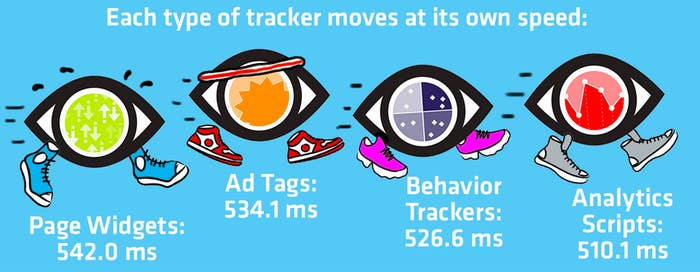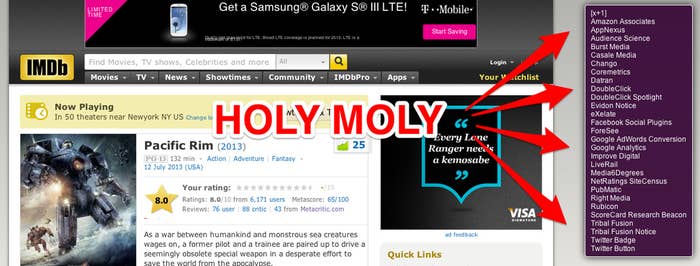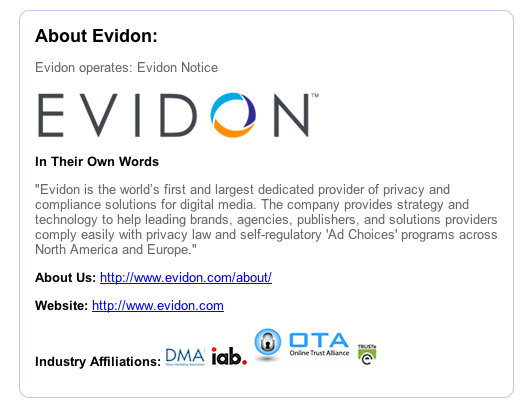
No webpage is an island.
Every time you click a link on the internet, you set off a cascading series of events. Some are the ones you would expect: the site needs to talk to a server to download images, for example, which takes some time. Others are less obvious. These are the obscure URLs that flash by at the bottom of your browser, and slow the whole process down.
Those little URLs are just the tip of the iceberg, and Ghostery is a free browser extension that lets you see the whole thing. For example, here's what Ghostery, which sits in the background while you browse, tells us about those invisible parts of this IMDB page:

To see the IMDB page for Pacific Rim, my browser talked to nearly 30 sites outside of IMDB (disclosure: BuzzFeed racks up about 15, and the NSA's official website counts just one: Google Analytics).
They're a mixture of advertising sites, tracking software, analytics tools and social plugins — tweet buttons, Facebook buttons and the like. A lot of the names in the lists will be familiar: Google, Amazon, etc. For the ones that aren't, Ghostery gives you a summary of what they do. Usually the weirder ones are ad products; sometimes, they're pleasant surprises:

This cuts to the heart of what makes Ghostery worthwhile. It's a tool that lets you see — and if you want, cut off — the services that websites are using to keep track of you, to send you to social networks, and to make sure their ads work as well as they can. It's less a tool to expose wrongdoing, which is how it feels at first, than a tool to let you know exactly where you stand relative to your favorite websites, as a customer who is being advertised to.
It's worth installing, if only for a few days. It'll change how you see the internet, and acclimate you to the idea that the web isn't just a series of independent pages, but a complex, giant, and largely invisible interconnected network of data exchanges.
This is neither inherently good nor necessarily bad; if anything, its only definite problem is that most people don't know about it. Some of the most important forces on the internet are invisible, and that's what Ghostery might be able to change. At least a little.
